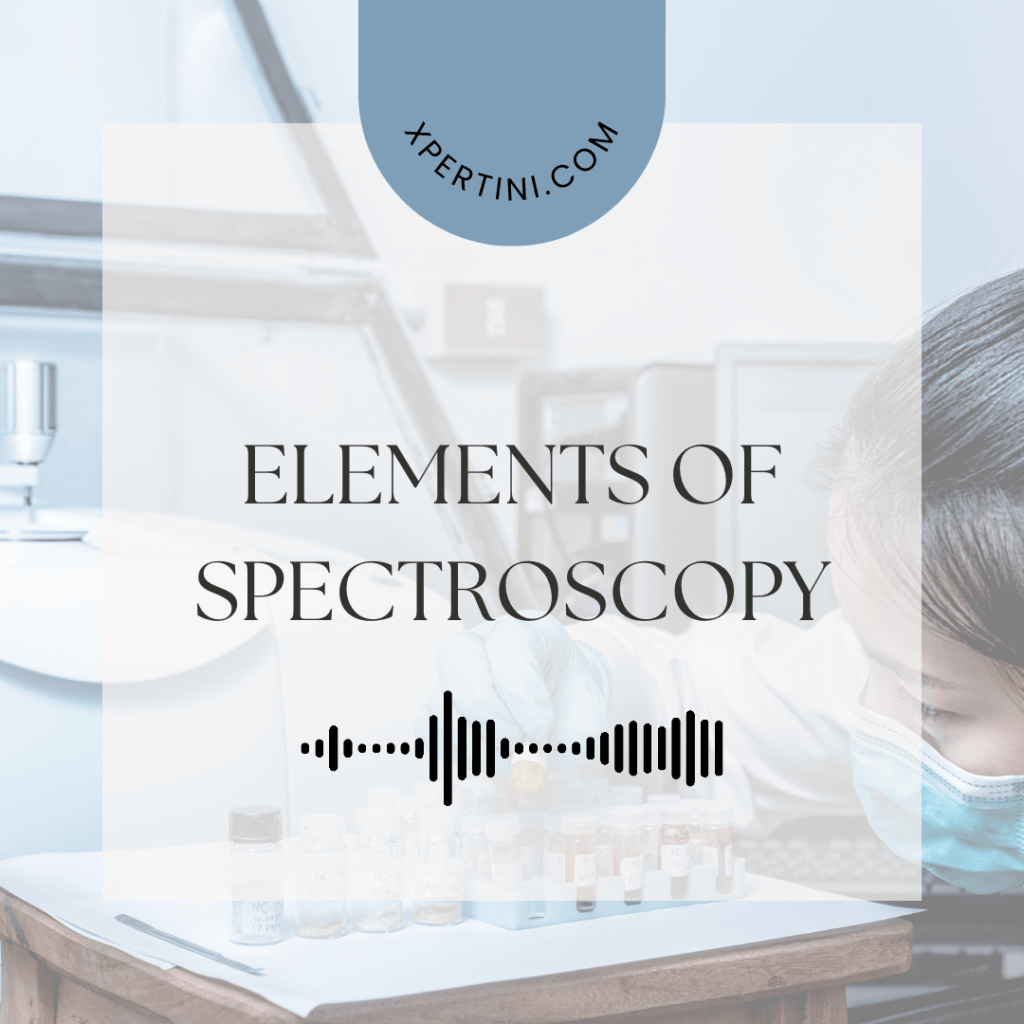Elements of Spectroscopy
Course Summary
In this comprehensive spectroscopy course, participants explore the fundamental principles and advanced applications of this field. The course caters to those aspiring to carve a career niche in spectroscopy or augment their existing knowledge. The content is presented in a concise, engaging manner, demystifying complex scientific concepts for easy comprehension.
The course begins by delving into the historical perspective, exploring the evolution of spectroscopy, key milestones, and noteworthy contributions. Learners gain insights into the fascinating journey that has shaped this critical scientific discipline.
Moving beyond historical narratives, the course delves into the fundamental principles governing spectroscopy, elucidating basic concepts and laws that form the bedrock of the field. The interaction of light with matter is thoroughly examined, providing a solid foundation for understanding subsequent chapters.
Participants then navigate through techniques and instruments, revealing the complexities of spectrophotometry and mass spectrometry. The content strikes a balance between technical depth and accessibility, ensuring learners comprehend the operational intricacies of these sophisticated instruments.
The exploration extends to applications in chemistry, where analytical chemistry and biochemistry take center stage. Practical insights into real-world scenarios, coupled with theoretical foundations, empower participants to appreciate the pivotal role spectroscopy plays in these domains.
Advancing further, the course illuminates the realm of advanced spectroscopy, shining a spotlight on NMR and infrared spectroscopy. Learners gain an understanding of these advanced techniques, expanding their expertise in the diverse applications of spectroscopy.
The course does not merely stop at theoretical knowledge; it takes a pragmatic turn into industrial applications. Quality control and process monitoring become focal points, elucidating how spectroscopy becomes an invaluable tool in ensuring product quality and process efficiency.
In the penultimate lesson, the course explores current trends and innovations, providing a glimpse into emerging technologies and recent research developments. Learners are equipped with insights into the cutting-edge advancements that shape the future landscape of spectroscopy.
As the course concludes, it addresses the challenges inherent in spectroscopy, detailing limitations, constraints, and the strategies employed to overcome technical hurdles. This pragmatic approach prepares learners for the realities of applying spectroscopy in diverse settings.
Beyond theoretical exploration, the course caters to career enthusiasts by shedding light on the plethora of job roles, specializations, and professional development paths within the field. It serves as a compass, guiding individuals toward rewarding careers in spectroscopy.
In essence, this course is a comprehensive exploration of spectroscopy, delivering knowledge without overwhelming complexities. It is a testament to the evolution, practical applications, and future trajectories of this indispensable scientific discipline. Participants emerge not just with information but with a profound understanding of the role spectroscopy plays in shaping the scientific landscape.
Course Overview
This course provides a deep dive into the fascinating world of spectroscopy, exploring the principles, techniques, and applications that underlie this crucial field in chemistry. Participants will gain a comprehensive understanding of spectroscopic methods and their significance in various scientific disciplines.
Course Objectives
- Understand the fundamental principles of spectroscopy.
- Gain proficiency in interpreting spectroscopic data.
- Explore the diverse applications of spectroscopy in chemistry and related fields.
- Develop practical skills in using spectroscopic techniques.
- Acquire knowledge about the historical evolution of spectroscopy.
- Analyze real-world scenarios where spectroscopy plays a pivotal role.
- Explore advanced spectroscopic methods and technologies.
- Evaluate the impact of spectroscopy on current research and industry.
- Foster critical thinking and problem-solving abilities in spectroscopic analysis.
- Discover potential career opportunities in the field of spectroscopy.
Course Outcomes
Demonstrate the ability to explain the basic principles of spectroscopy.
Apply spectroscopic techniques to solve complex scientific problems.
Transfer their spectroscopic knowledge to practical applications in various scientific domains.
Retain and recall key concepts and techniques learned throughout the course.
Express increased interest and motivation in exploring advanced spectroscopic methods.
Accommodate different learning styles and preferences.
Develop a curious mindset towards emerging trends and advancements in spectroscopy.
Recognize the societal and cultural impacts of spectroscopic research and applications.
Directly applicable to real-world scenarios and challenges.
Evaluation methods will align with course objectives, providing meaningful feedback on participant understanding.
Course Audience
- Undergraduate and graduate students majoring in chemistry or related fields.
- Professionals seeking to enhance their knowledge of spectroscopy for career advancement.
- Researchers and scientists interested in incorporating spectroscopic techniques into their work.

